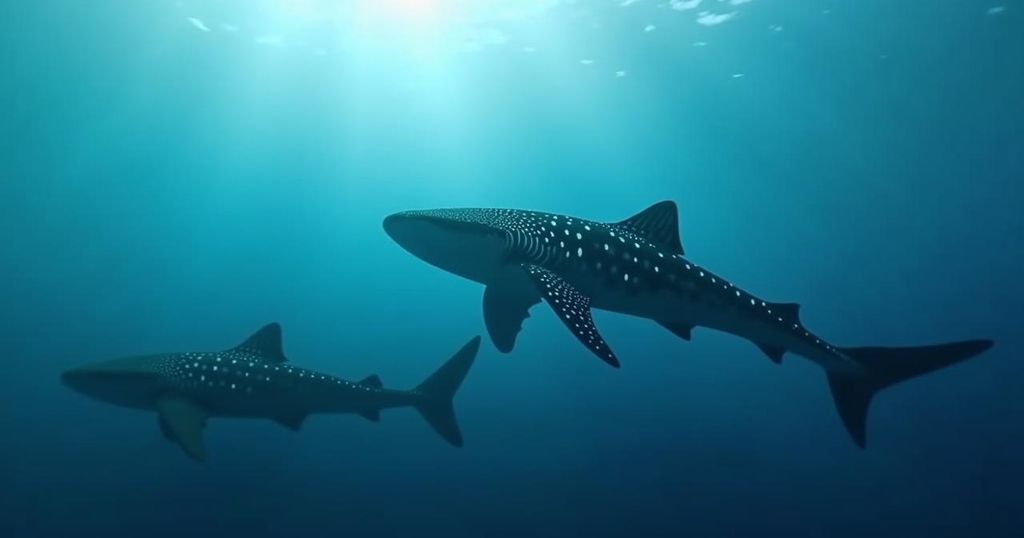Climate Change Increases Collision Risks for Endangered Whale Sharks
A recent study indicates that climate change is leading to increased risks of fatal shipping collisions for endangered whale sharks. As warming oceans drive these large fish into new habitats that overlap with shipping lanes, researchers predict a staggering rise in the frequency of co-occurrences with large vessels. Proactive approaches to mitigate climate change could lessen these threats, highlighting the importance of integrating climate factors into conservation efforts.
Recent research indicates that global warming is increasing the risk of deadly collisions between endangered whale sharks and large shipping vessels. The species, which can exceed lengths of 60 feet, is predicted to face heightened threats as climate change drives them into new habitats that intersect with busy shipping lanes. A study conducted by scientists from the University of Southampton and the Marine Biological Association (MBA), published in the journal Nature Climate Change, highlights that the likelihood of whale sharks coexisting with large ships could increase by 15,000 times by the century’s end. Dr. Freya Womersley, the lead author, noted that the largest habitat shifts occur under high emission scenarios, leading to significant core habitat losses and increased interactions with shipping traffic. Whale sharks are known for their mobility and adaptability to temperature changes; however, they remain particularly susceptible to ship strikes, which often result in serious, if not fatal, injuries. The study utilized satellite tracking data and climate models to assess potential distribution shifts under three future climate scenarios. The findings revealed that by 2100, core habitats could diminish by over 50% in certain national waters, particularly in Asia, under current emission trajectories. Conversely, sustainable development efforts aimed at limiting global warming to 2°C may yield positive outcomes, especially in Europe. Professor David Sims emphasized that proactive measures to tackle climate change could mitigate its effects on marine species. The research further identified overlaps between newly suitable whale shark habitats and major shipping routes in regions such as the North Pacific Ocean and the Eastern China Seas. The study concludes that climate change exacerbates pressures from human activities on vulnerable marine species, underscoring the need for integrated considerations of climate factors in endangered species management.
The discussion surrounding the impact of climate change on marine species has become increasingly critical, particularly as global temperatures continue to rise. Whale sharks, the largest fish species on Earth, face severe threats from habitat loss and human activity, particularly shipping traffic. As the climate alters oceanic conditions, these remarkable creatures are forced into new realms, often entering zones congested with maritime vessels, thereby elevating the risk of collisions. Research efforts aim to better understand these dynamics to inform conservation strategies and policy decisions that protect both whale sharks and their habitats from the escalating impacts of climate change and shipping activities.
In summary, the study conducted by researchers from the University of Southampton and MBA elucidates the alarming consequences of climate change on endangered whale sharks, emphasizing the increased risks from shipping collisions as their habitats shift into busier routes. The findings affirm that addressing climate change through concerted efforts can significantly alleviate some adverse effects on these vulnerable species. Effective management strategies must therefore incorporate climate considerations to safeguard whale sharks and ensure their continued survival in an evolving marine environment.
Original Source: www.fox28spokane.com




Post Comment